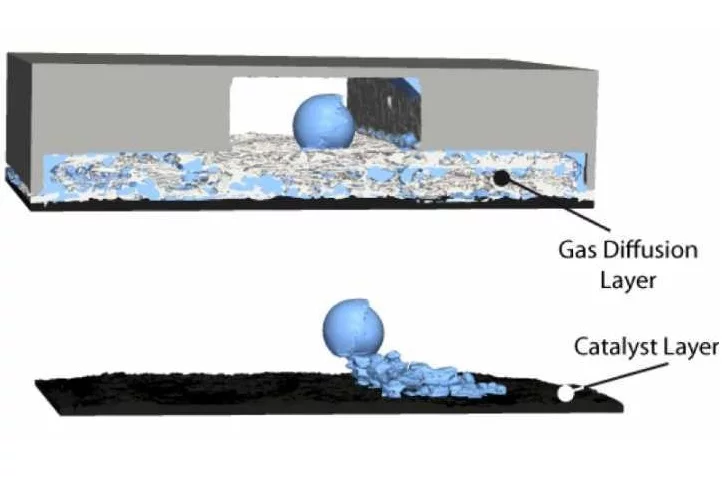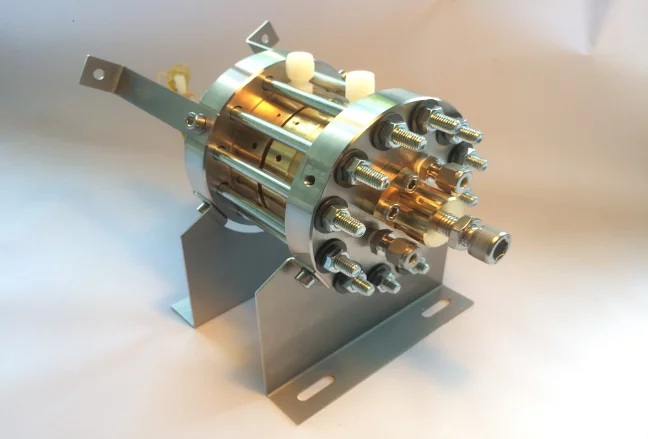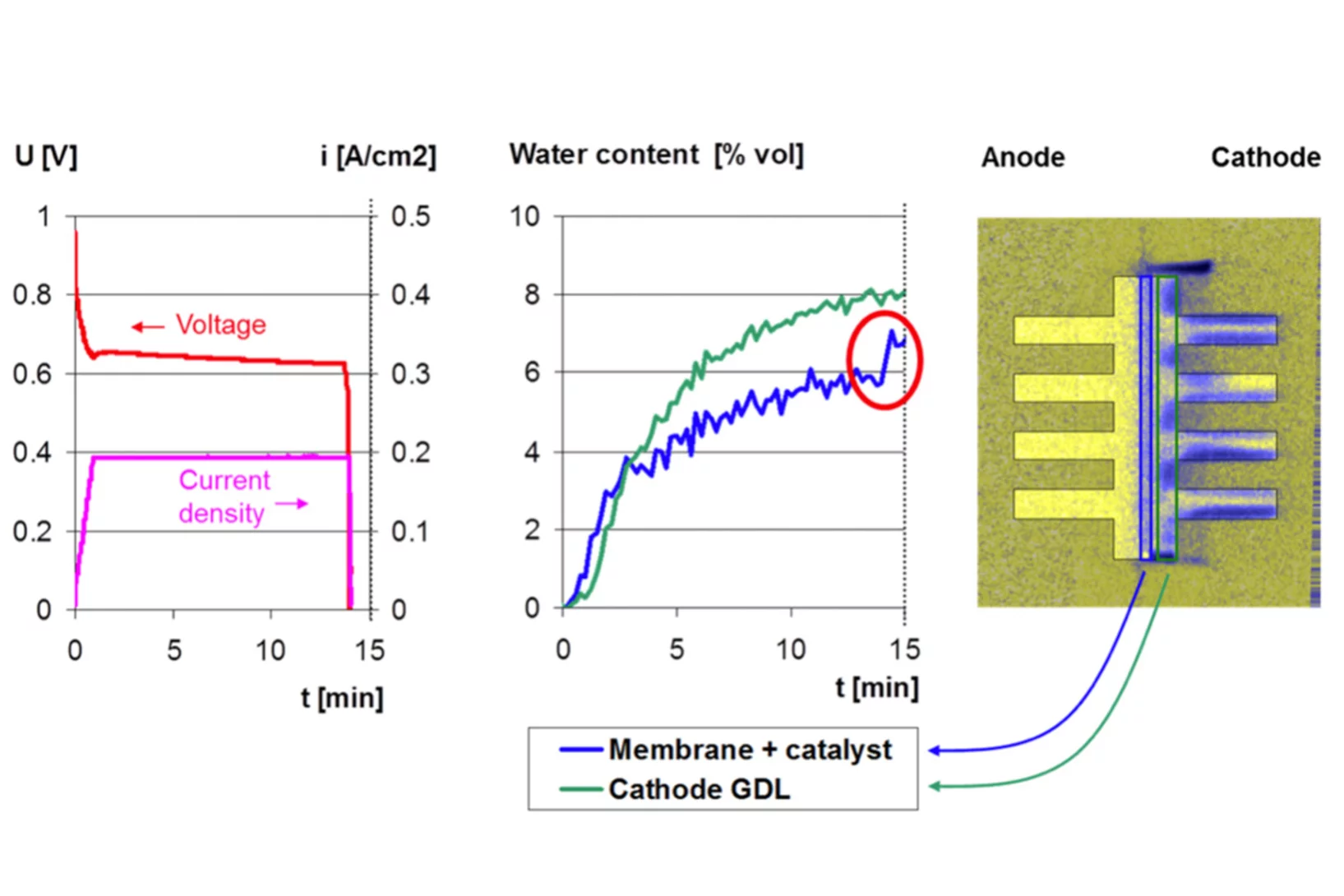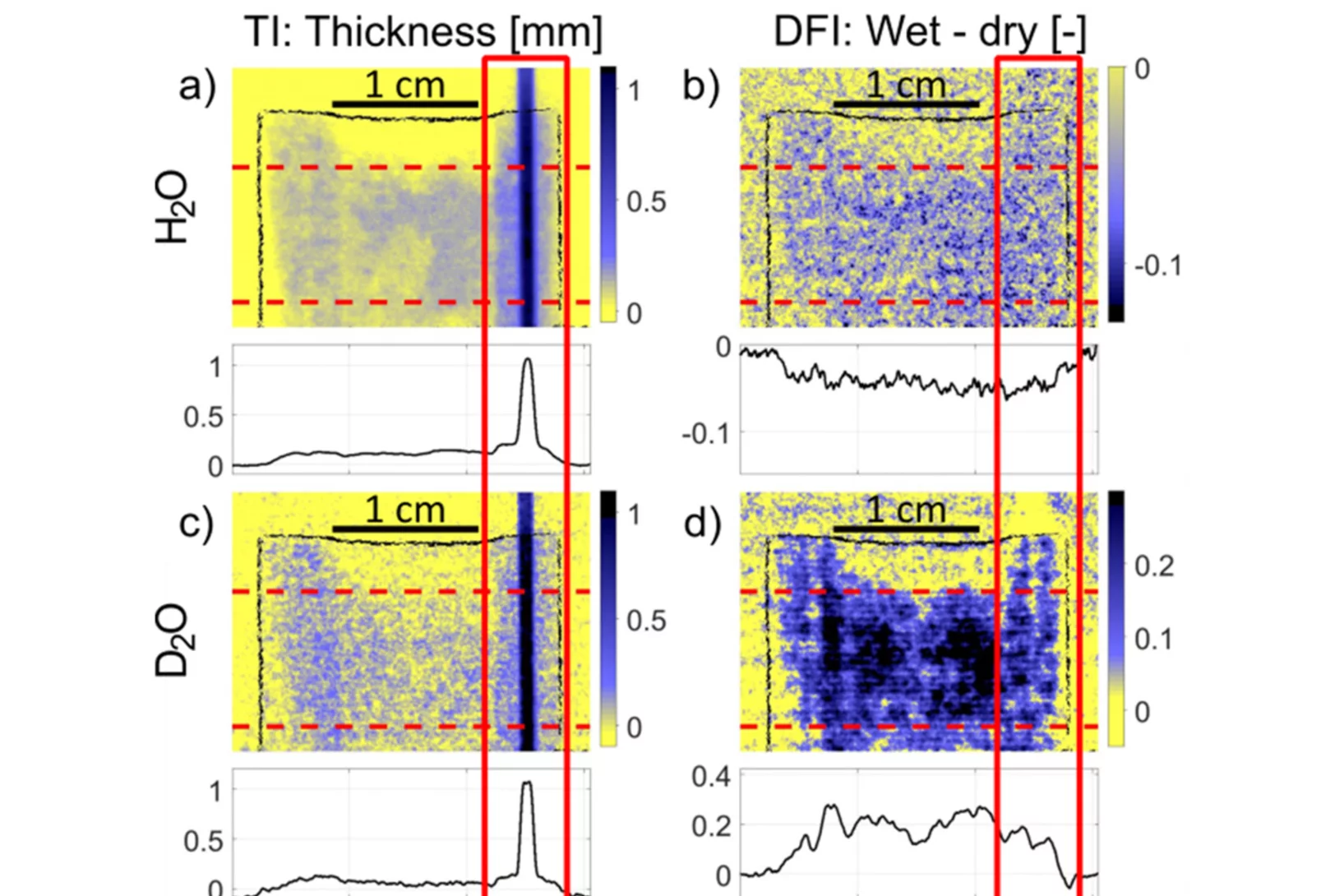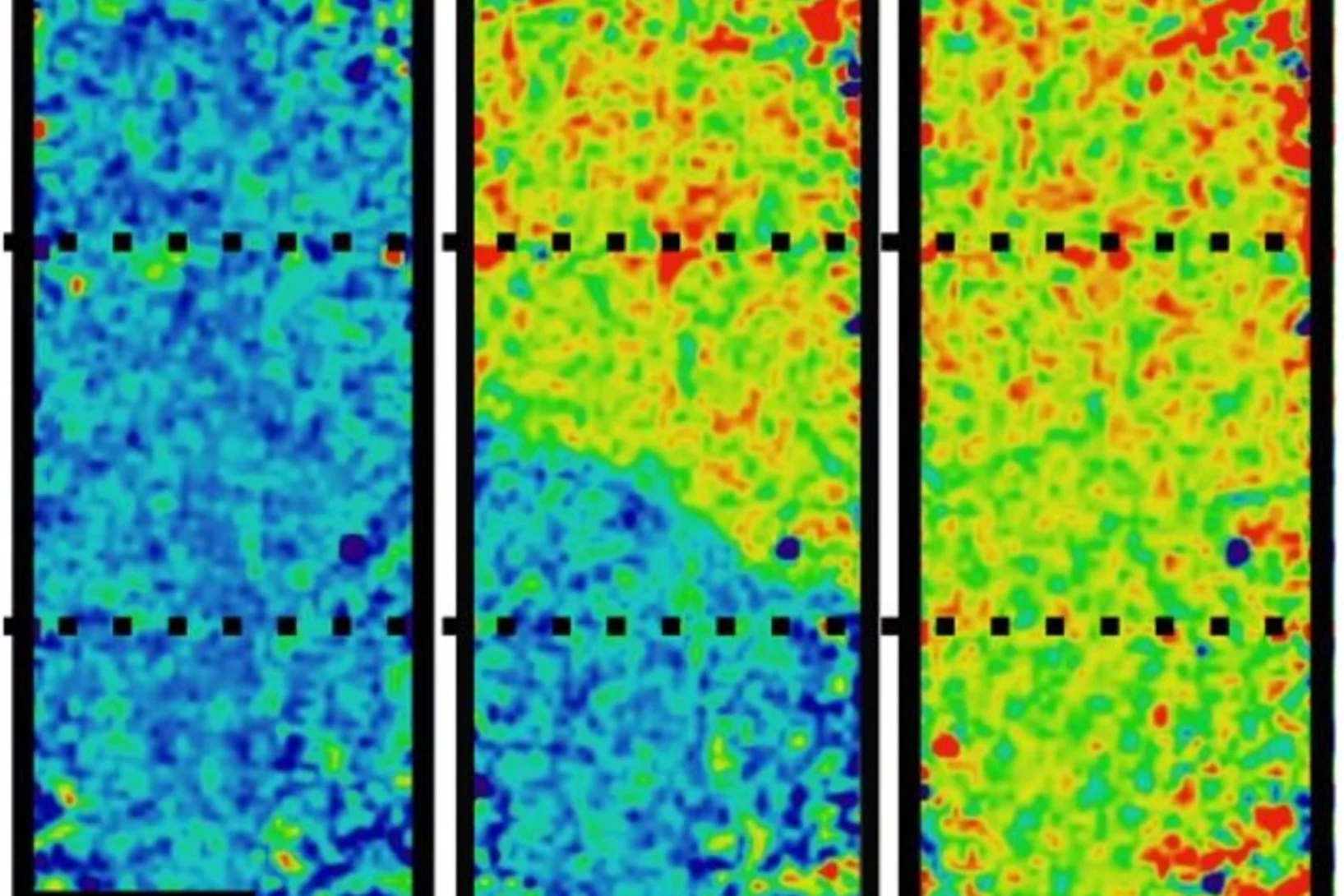Fuel cell characterization by various diagnostic methods and understanding of the function and lifetime behavior of fuel cell components for PEFC and HTPEFC's is the vision and the mission of the fuel cell diagnostic activity. This encloses the ex-situ characterization, the in-situ performance and durability testing, as well as the numerical modeling of the processes. The diagnostic methods comprise impedance spectroscopy, local gas phase analytics, in-situ tomographic characterization, as well as locally resolved electrochemical experiments on various scales. Active area of sub cm² single cells up to several 100 cm² stacks for mobile applications can be tested.
Operando X-ray Tomographic Imaging of Water in PEFC
Water management is the major limiting factor in PEFC for further increasing the power density. Fast synchrotron and conventional CT X-ray tomographic microscopy (XTM) enables the investigation of the water management by 3D visualization and quantification of stationary and transient water saturation in the porous materials in model experiments and under real operating conditions. This data is key for future developments with respect to performance, durability and cost.
Polymer Electrolyte Water Electrolysis (PEWE)
Fast start-up, dynamic operation, high differential pressures and production of high purity hydrogen up to high current densities make PEWE an interesting technology for storage of fluctuating (excess) renewable power. The fundamental understanding of kinetic and mass transport process in PEWE is our core interest. Porous materials are characterized using X-ray tomographic imaging and electrochemical methods.

